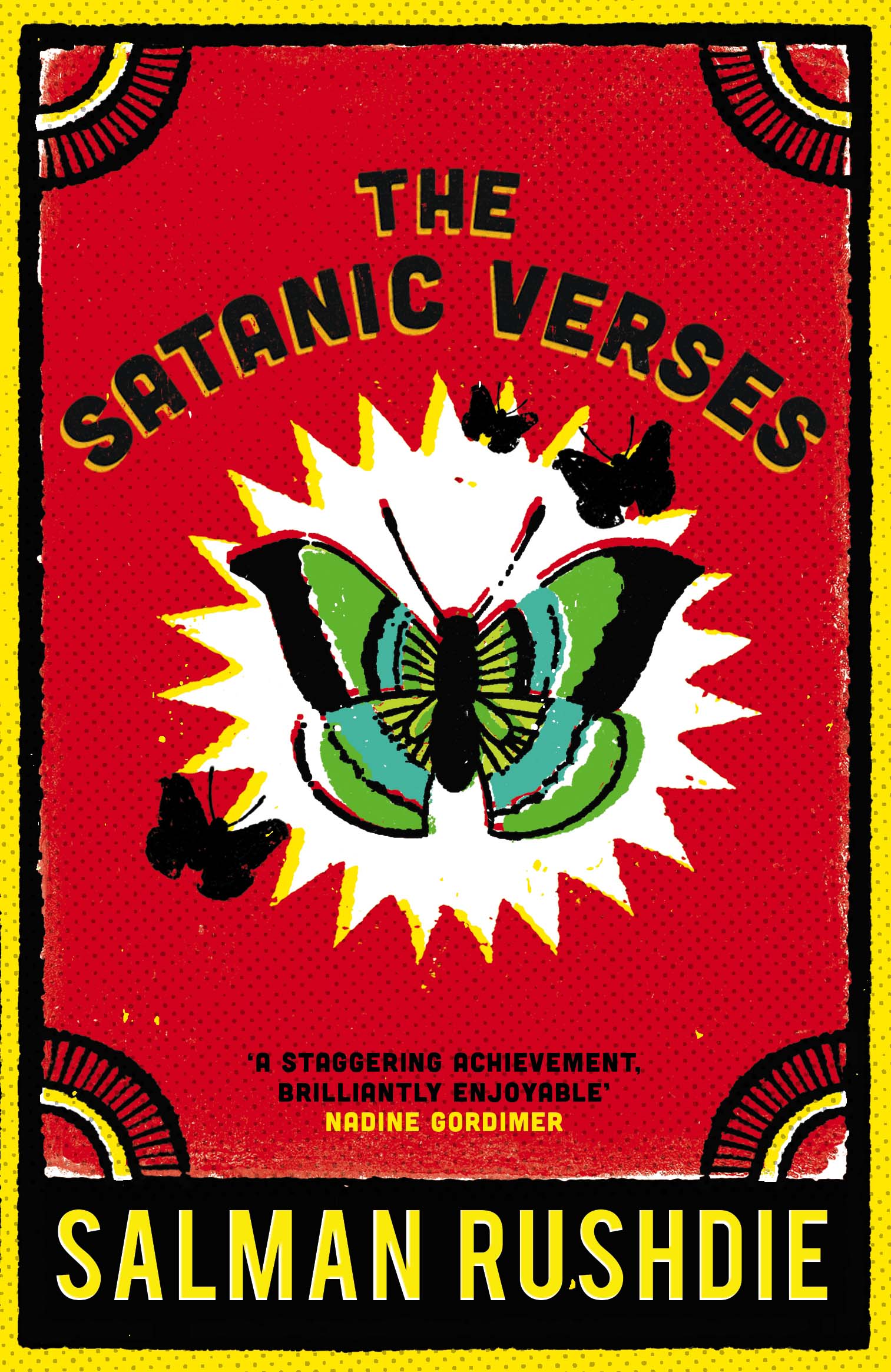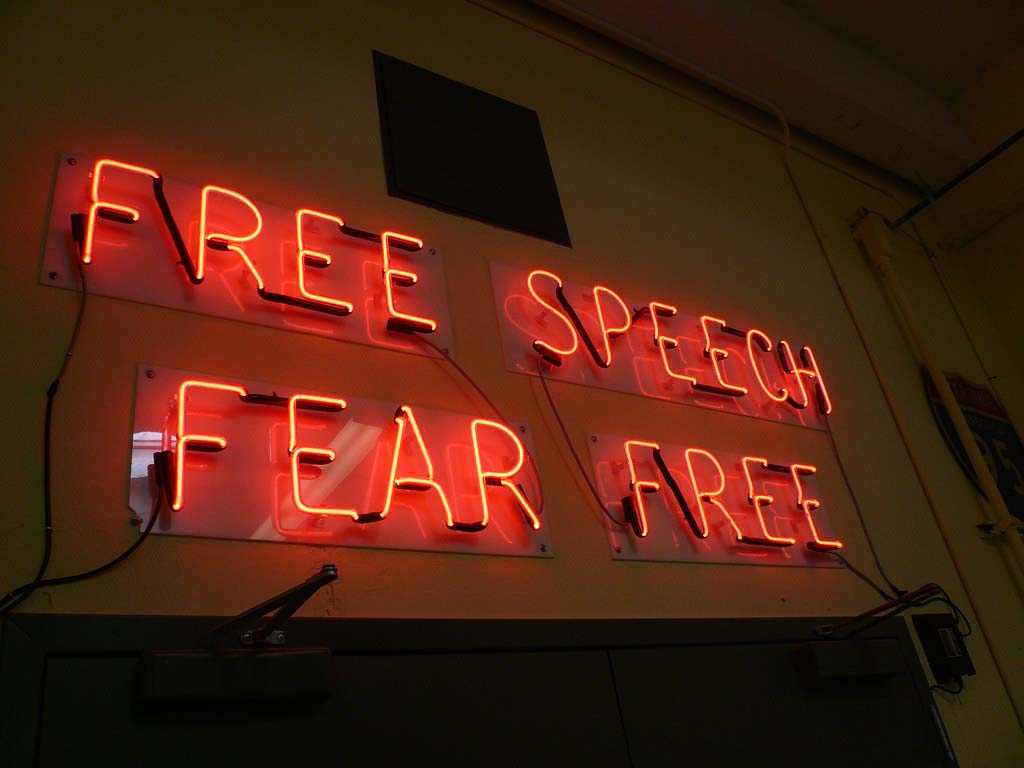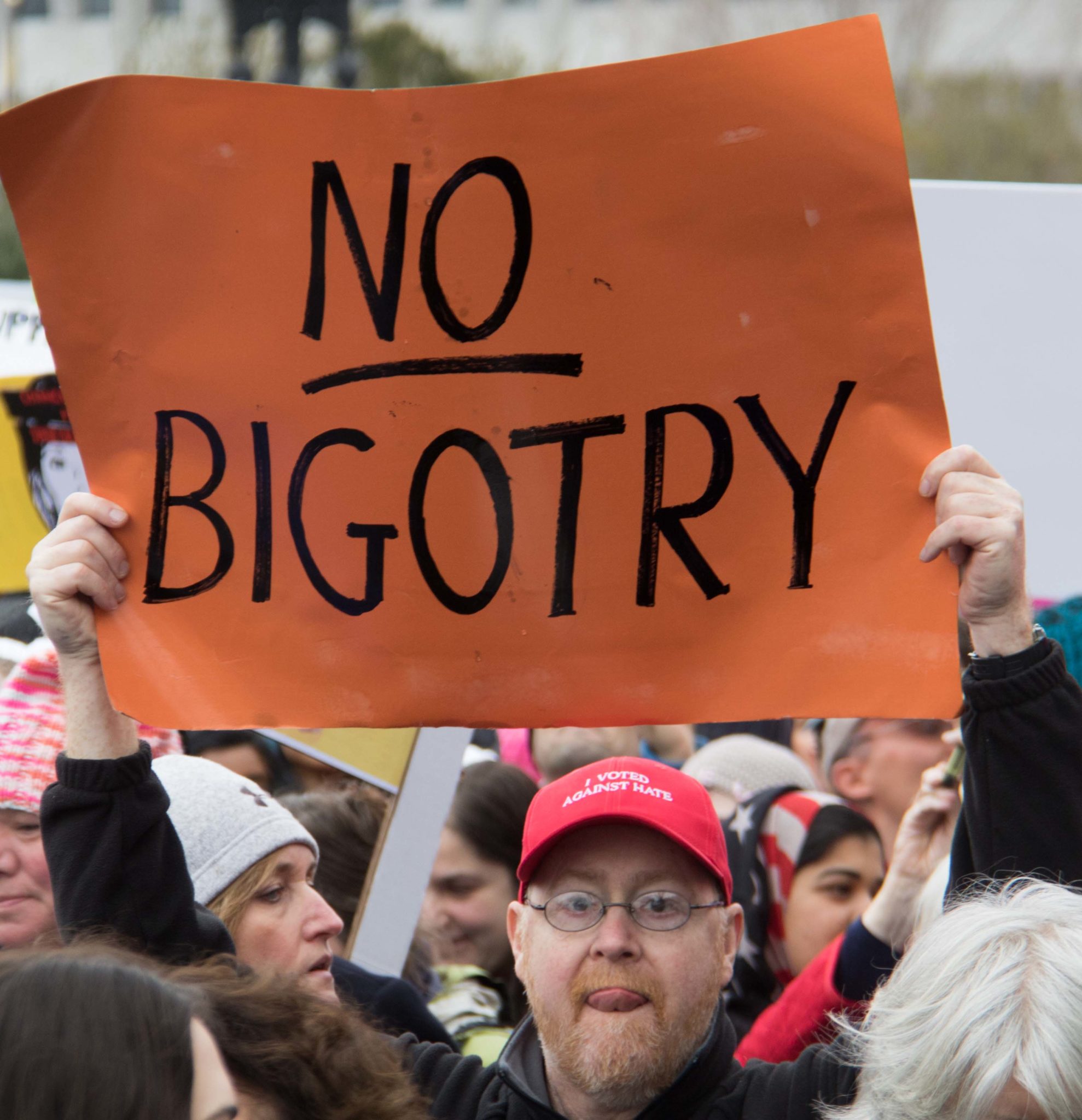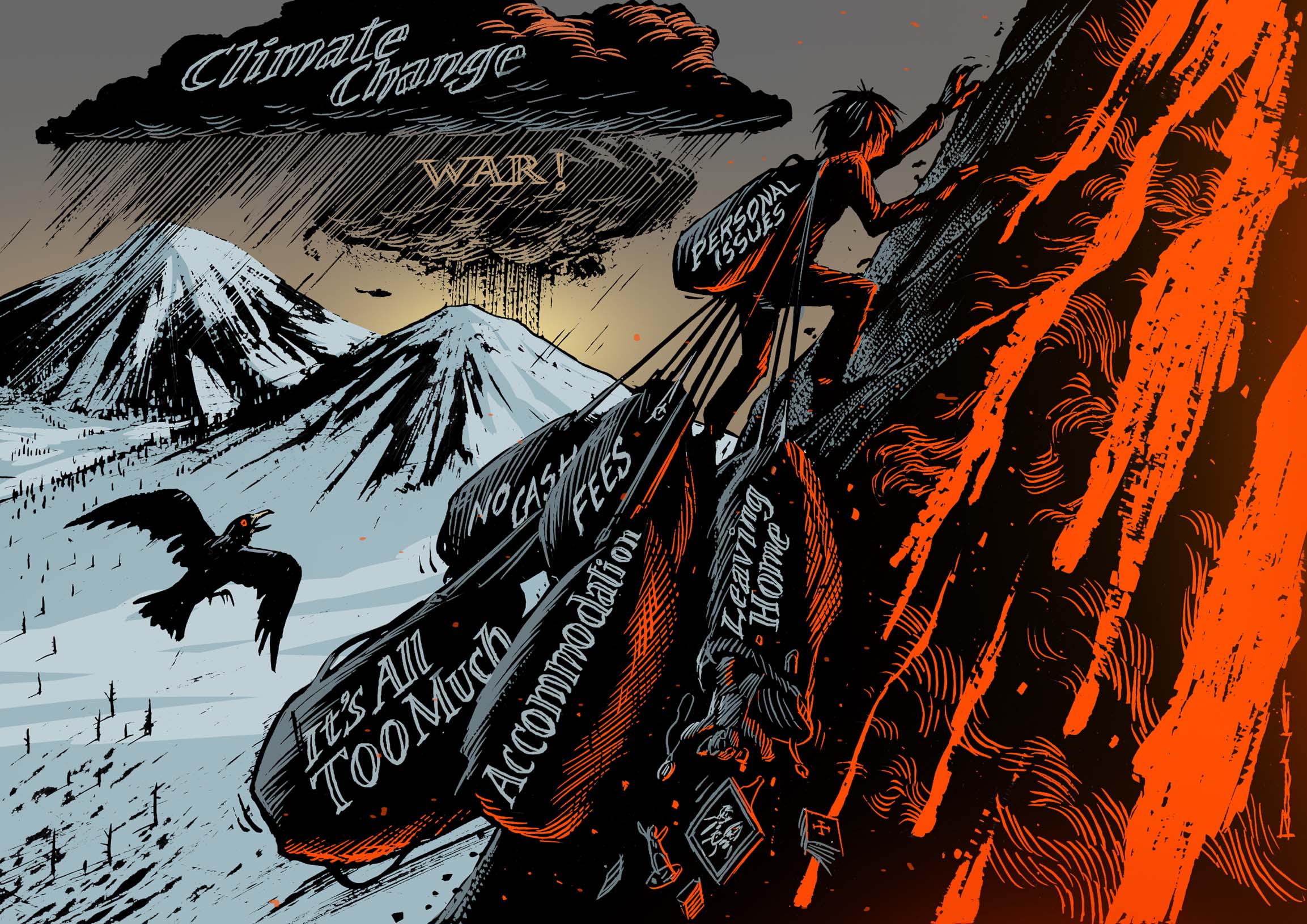- Opinion
- 09 Sep 22
We Need To Realise The Crucial Importance Of Freedom Of Speech

The attempted murder of the author Salman Rushdie has been rightly condemned in democratic countries across the world. But there is a vital lesson to be learned from it. In democratic societies, we must re-emphasise the value of tolerance – and re-embrace a commitment to open and free discussion and debate. Ahead of the most challenging period in college life in generations, it is an important principle for students to remember, as they launch into a fresh academic year...
What was your reaction to the news that an attempt had been made to murder the novelist Salman Rushdie? It is an important question, and one that we all need to think very carefully about. Especially students who are embarking on a life of thought, of ideas, of argument, of enquiry, of learning, and – finally, hopefully – of self-expression, of creativity and, in some cases at least, of cultural and artistic achievement.
The celebrated, multi-award winning, Indian-born author of 12 novels – including the ground-breaking Midnight’s Children (1981) and The Satanic Verses (1988) – and of as many works of non-fiction, was attacked as he was about to deliver a lecture at the Chautauqua Institution, in Chautauqua, New York on 12 August this year. In his speech, Salman Rushdie was ready to extol the virtues of the United States of America as a safe haven for writers.
Rushdie was stabbed ten times. He was rushed to hospital, amid fears that the attack might prove to be fatal. He suffered extremely severe injuries, including having his eye pierced. After a period in intensive care, the word came through that he was recovering, that he would survive. Sadly, it seems certain that he has lost the sight in one eye.
“Though his life-changing injuries are severe,” his son Zafar reported soon after the attack, “his usual feisty and defiant sense of humour remains intact.”
SHOCK AND HORROR
A 24 year-old man, named as Hadi Matar, was arrested at the scene of the attack. Matar was born in California, the son of parents from the southern part of Lebanon, and currently lives in Fairview, New Jersey. His mother says that he was changed – she might have said radicalised – by a visit to see his father in Lebanon. He drank, it seems, at the poisoned well.
No one could be in any doubt that the brutal assault was linked to the fatwa issued in 1988 by the Ayatollah Khomenei, the Supreme Leader of Iran, calling for the assassination of the author, following the publication of Rushdie’s novel The Satanic Verses, which was denounced for satirising the prophet, Mohammed. The fatwa offered a bounty of $3million to whoever might successfully carry out the murder. At the time, Rushdie was forced to go into hiding, for a long time living a shadow life under the name Joseph Anton – a pseudonym which was inspired by two of the great literary figures, Joseph Conrad and Anton Checkov.
With Rushdie in hiding, the Japanese translator of The Satanic Verses, Hitoshi Igarashi, a scholar of Arabic and Persian literature, was first attacked at the press conference held to announce the Japanese edition. The following year, on 12 July 1991, Igarashi was stabbed to death in his office in the University of Tsukuba. No one was ever charged with the murder, though there has been speculation that it was a covert operation, carried out by the Iranian Revolutionary Guards.

The chief suspect in the attack on Salman Rushdie, Hadi Matar, has since been charged with attempted second-degree murder. Iran has denied any direct involvement in the attack, but the crime was celebrated by both the State broadcaster, and by hardline conservative media there. Even someone as apparently plausible as the Iranian political analyst and former member of the country’s nuclear negotiation team, Mohammed Marandi, felt no shame about appeasing whoever was responsible. “I won’t be shedding tears,” he said, “for a writer who spouts endless hatred and contempt for Muslims and Islam.”
I thought about what the great American comedian George Carlin used to say about Christianity and winced. Perhaps today, there’d be a fundamentalist Christian militia outside his shows determined to shoot him on sight.
Inevitably, the response in democratic countries was diametrically different. The assault – seen as an enormously threatening attack on freedom of speech and of thought – was condemned by many of the world’s leading writers, including Ian McEwan, Margaret Atwood, Arundhati Roy, Ben Okra, Graham Swift, Kazuo Ishiguro, Abdulrazak Gurnah – and dozens more. Public readings of Salman Rushdie’s work were organised by the writers representative organisation, PEN America, involving Paul Auster, Kiran Desai and Guy Talese among others, and these have been replicated across the globe, including in Ireland.
The attack on Salman Rushdie was described, in the New York Times, as sending ripples of shock and horror through the literary world. The Australian-British expert on the Islamic world, Kylie Moore-Gilbert described it as “a black day for for freedoms of speech, expression, religion and conscience.”
Salman Rushdie’s son, Zafar was even more passionate in his assessment. “Free speech is the whole thing,” he said, “the whole ball-game. Free speech is life itself.”

BULLYING AND ABUSE
Throughout the democratic world, citizens have been nodding in agreement in their millions. And rightly so.
For students, this is an important note to strike at the start of the academic year. It is also vital in the context of what we are seeing happen now in Russia, in China, in Cambodia, in the Philippines, in Qatar, in Afghanistan, in Saudi Arabia – where Noura al-Qahtani, a mother of five, has been sentenced to 45 years in jail for “spreading lies through tweets” – and so on, apparently endlessly. Authoritarians and dictators are becoming increasingly brutal in their treatment of individuals who express any form of opposition to the regime, whatever the nature if it, or step outside what are nauseatingly restrictive and intrusive rules in relation to sexual conduct.
Even in the UK, with the Conservative government’s proposed Online Safety Bill, freedom of speech is at risk. Sweeping powers are being introduced to censor legal speech by imposing a ‘duty of care’ on internet companies to remove content that may cause ‘psychological harm’. Failure to do so will potentially result in huge fines, levied by Ofcom – an arm of the State that the Tories are determined to turn into an instrument of the Conservative party.
It is a recipe for disaster.
There is, of course, a need to regulate internet companies. They should not be allowed to hide behind the fiction that they are platforms not publishers. It is a blatant lie, that never should have been entertained.
They should be subject to the same legal regime that applies to every other form of media: that is, they should be open to being sued, for anything libellous they publish, or allow to be published, on their platforms (and from which they can and do leverage advertising revenue). They should be held accountable for hate speech, and for disinformation – especially if it is disseminated in advertising. Why should they be permitted to profit from deliberately enabling the kind of lies that put democracy itself at risk, as is happening in the US right now? But no country is immune from this plague.
The reality is that the big internet publishers – including social media companies – consistently play an editorial role, posturing as knights in shining armour when it suits them – for example, by encouraging users to vote, as they did during the last US Presidential election. But there is more: the algorithms they concoct also act in a quasi-editorial way. They observe your online activity. They feed you more of the same diet, with knobs on. They push you towards extreme versions of the points of view you have been checking out, all the better to drag you down the rabbit hole and keep you there, burrowing away and racking up the advertising views.
Or conversely, rewarding the people who spend advertising money by elevating them into the timelines of innocent and often vulnerable users. At every level, they run a thoroughly cynical, disreputable, show that’s designed to manipulate your engagement and to lure you into viewing and sharing more extreme, often completely fabricated and manipulative ‘alternative facts’ – better known as lies.
Why should RTE, The Irish Times or Hot Press be held accountable for what appears in a classified ad, placed by a reader, and not Facebook or Google or Twitter, in relation to the mad, aggressive, hate-filled incitements to violence that they publish all the time? There is neither justice nor logic to it. The only real difference is that they have successfully created the conditions where they don’t have to pay for the content around which they sell ads. They get that poison free. And they get it in vast volumes, making it next to impossible for people who employ professional journalists to compete.
It is not just that they should be held accountable. It is that they must, if we are to prevent the media, and indeed society at large, from descending further into a vile cesspit of lies, disinformation, bullying and abuse.
But to say all of that is different from enshrining in law that anything that might cause so called “psychological harm” can and should be censored. A broken bone can be seen on an x-ray. But “psychological harm” is something which any dingbat can claim, in order to pursue a political or ideological agenda of whatever shade or stripe. And there is no need for any objective evidence. All the person has to do is to insist that they have been ‘upset’. The UK example confirms that this is an arena in which, even in what have long been considered the most open liberal democracies, we are currently skating on very thin ice.

EVERYDAY COURTESY AND FAIRNESS
Freedom of speech doesn’t exist in autocracies. Nor does the free exchange of ideas. Nor does the idea of political debate.
The question we have to answer in liberal democracies generally, and in Ireland in particular, therefore, is: how much do we value the freedom that has been carved out gradually – and at great cost to individuals and campaigners – over the past 100 years?
There was a time when the Censorship office here was operating round the clock, banning books, films and on occasion closing down theatrical works, with great gusto – and big, fat smiles on their mugs. I wrote not so long ago about the insidious control exercised by the Roman Catholic Church over what people could see, read or listen to. It was an experiment in thought-control and in many ways it worked – until enough people decided to actively resist.
Ireland started to open up to outside influences. People began to travel more widely. They saw contraception available across the counter all over Europe. They gradually became aware of the fact that the dominant Church’s views on sexuality were both twisted and grossly hypocritical. They began to realise that homosexuality was – and is – perfectly natural and far more common than had been pretended. They saw the abuse for which members of the religious orders were responsible, and decided they wanted nothing more to do with the whole grim edifice.
Hot Press played its part in driving this shift. Ahead of everyone else in Ireland, we declined to delete the expletives. If a rock star, a politician or an activist said ‘fuck’ in an interview we included it. But that was just the symbolic tip of a much more substantial iceberg. We gave people the freedom to express their views. We allowed open comment on institutions that had revelled in secretiveness, and thrived on being seen as above above criticism.
Our editorial mission has always been driven from a left, liberal, progressive, socially conscious perspective. The media generally was conservative, right-wing and deferential. We were determined to challenge and change that. But we also allowed those we disagreed with to have their say in interviews. We put them under pressure. We asked awkward questions. We exposed the inconsistencies. We targeted the hypocrisy and helped them to reveal it.
But we did it in a spirit of ordinary, everyday courtesy and fairness. They were, and are, our fellow citizens. They are entitled to be treated equally. We might dislike what they had to say. But we aimed never to descend into the kind of behaviour we were opposed to. We wouldn’t bully people. We wouldn’t abuse them in a way that was aimed at damaging them. We wouldn’t engage in egregious censorship of divergent views.
I still think that is the way things should be done.
A REMARKABLE TRANSFORMATION
As the singer said: “And so it goes, and so it goes, and so it goes, and so it goes – how it started no one knows.” This morning, it was revealed that six Gulf States had warned Netflix over content violating ‘Islamic values’. According to The Guardian, a statement was issued jointly by the Saudi media regulator and the six-member Gulf Cooperation Council (GCC), headquartered in the Saudi capital, Riyadh. It did not identify specific material, referring only to content that “contradicts Islamic and societal values.”
“The platform was contacted to remove this content, including content directed to children,” the statement said.
Regional authorities “will follow up on the platform’s compliance with the directives, and in the event that the infringing content continues to be broadcast, the necessary legal measures will be taken.”
It was made clear on Saudi State-run media that the move against Netflix has to do with scenes that are interpreted as “promoting homosexuality.”
For students starting out in college life, all of this is worth bearing in mind. We take Netflix for granted. And so, as with the barbaric attack on Salman Rushdie, the vast majority of us read a news report like this with horror. How is it possible that something as ordinary and everyday as homosexuality is still a potential capital offence in Saudi Arabia? We know this is evil. We want to see it change. We want progressive forces to prevail.
But we should bear this in mind: that attitude is not consistent with a desire to shut down discussion and debate here in Ireland, or elsewhere in the democratic world. It is not consistent with joining a Twitter mob to harass and bully people with whom we disagree. It is not consistent with insisting that there is only one view on any potentially controversial issue that everyone has to hold or they will be brow-beaten, bashed and bullied into silence.
In Ireland, we really have achieved a remarkable transformation from the time – not so long ago – when a covert theocratic regime was allowed by the State to oppress women, outlaw homosexuality, other Trans individuals, shut down dissenting voices, stifle progress and exert a deeply rooted, insidious form of Roman Catholic control over the lives and loves of every citizen, irrespective of their beliefs.
INCITEMENT TO HATRED IS WRONG
That transformation was fought for at every step along what was a tortuous, bumpy road with loads of hidden potholes. But the great victories – including the introduction of Same Sex Marriage, and of abortion, in the referenda of 2015 and 2018 respectively – were achieved through respectful discussion, debate, persuasion and advocacy. They were achieved by listening – and by successfully getting those who might have gone either way in the vote to listen in return. They were achieved, not by shouting, harassment or intimidation, or by provoking people into an equal and opposite level of hostility, but by accentuating the positive and carefully convincing the majority to leave received religious dogma behind.
Those of us who are on the liberal, open, accommodating, live-and-let-live wing of Irish society have, of course, to be vigilant in relation to the dirty tricks that will be played by xenophobic, racist, right-wing, bigoted ideologues.
As we enter the final months of 2022, there is an immediate danger here, that the surge in migrant numbers – as a result of both Russia’s brutal invasion of Ukraine, and the sick machinations of the Conservative government in the UK, as they threaten asylum seekers that they will be slung onto a one-way plane to Rwanda and dumped there – will be used to stir up a populist, right-wing, racist response in Ireland. The fact that the Sinn Féin TD for Kildare South, Patricia Ryan, appears to have jumped on board the NIMBY anti-refugee bandwagon is worrying, in that so far Sinn Féin has succeeded in keeping a lid on the proto-fascistic Nationalism that existed in the past, and has the potential to grow again, among the ranks of its supporters. But what we must do, even in facing down prejudice and bigotry, is to avoid becoming like those we oppose. It is wrong to engage in coercive behaviour. It is wrong to try to shut other people down. It is wrong to set out bully, harass and silence people. It is wrong to join a Twitter mob. To gang up on individuals, often at grave risk to their sanity. To impose a new dogma that is potentially just as uniform, high-handed and domineering as the old.
I am well aware that freedom of speech is not an absolute. You cannot justify standing up in a cinema and shouting “fire” unless there really is one. Incitement to hatred is wrong. Racism must be challenged. Transphobia is stupid. But we know, instinctively, that the fatwa on Salman Rushdie – and his attempted murder – are an expression of a world-view that is undemocratic, dogma-based and rotten to the core.
The message for those of us involved in progressive causes – including the majority of Irish students – is not to fall into the trap of becoming even half as crudely judgemental and censorious. And the first step on that journey is to start to listen.
I am an atheist. But there is one lesson from the gospel that is worth learning. Let he – or she or they – who is without sin cast the first stone.
 Illustration: David Rooney
Illustration: David RooneyThe Student Special issue of Hot Press is out now – pick up your copy in shops now, or order online below:
RELATED

- Opinion
- 24 Dec 25
Migration: It's Time To Stop Blaming The Victims

- Opinion
- 17 Dec 25








